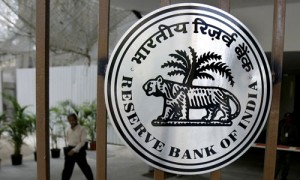By: Ravi Sinha
Track2Realty Exclusive
 The repo rate hike by the Reserve Bank of India (RBI) by 25 bps seems to have spoiled the festive spirit of the real estate sector. Reeling under the demand slump, inflationary pressure, liquidity crunch and rising inventories, they were thus far expecting the Navratra and Diwali to uplift the market sentiments and bring the prospective home buyers back to the market. Many of the realtors now foresee a black Diwali ahead and think this could have been avoided at least till the festive season.
The repo rate hike by the Reserve Bank of India (RBI) by 25 bps seems to have spoiled the festive spirit of the real estate sector. Reeling under the demand slump, inflationary pressure, liquidity crunch and rising inventories, they were thus far expecting the Navratra and Diwali to uplift the market sentiments and bring the prospective home buyers back to the market. Many of the realtors now foresee a black Diwali ahead and think this could have been avoided at least till the festive season.
The realtors’ apprehension about the home seekers now staying away from the market is not without any basis. While general sentiments in India are that with festive season people tend to go for buying decisions and as far as real estate is concerned most of the bookings take place in the festive season. However, the rate hikes have made cost of funds expensive for both developers and buyers, and the buying spree may not be seen in the coming festive season.
Facts speak for themselves. A sample survey conducted by Track2Realty in four key cities of Delhi-NCR, Mumbai, Bangalore and Kolkata indicates that home seekers are deferring planned purchase of property during Navratra and Diwali. Even those who have the sound repayment capabilities in hand are apprehensive of further rate hike.
Harsh Roongta, CEO, Apnapaisa.com says while this was expected by the market, a firmer than expected statement on continuing the policy of increasing rates in a calibrated manner means that we could see more such increases in the next policy review.
“There may not be any immediate impact of these increases on lending rates as the demand for loans has already been impacted by the current high interest rates. Banks are likely to wait and see how the demand for loan shapes up in the festival season which is just around the corner before they increase rates. But clearly the belt tightening times are likely to continue for loan consumers,” says Roongta.
Pradeep Jain, Chairman, Parsvnath Developers and Chairman, Confederation of Real Estate Developers’ Association of India (CREDAI) believes that this current hike will be the last one for 2011. He feels that the monetarist approach to quelling inflation has failed to deliver results. Instead of depressing prices, it has suppressed growth. Industrial output growth in July slumped to 3.3 per cent, the lowest in almost two years, accentuating fears that a slowdown is imminent.
“We would like to request Government to improve industrial climate and business environment, stimulate investment and ensure adequate feedstock linkages and development of industry-relevant skills. We are of view that if measures had been taken to kick start production and manufacturing to support supply in market, we might have seen a different scenario altogether. It is now for the Government to take fiscal steps to tackle inflation and promote growth,” says Jain.
Calling for a fresh thinking to contain inflation, the Maharashtra Chamber of Housing Industry (MCHI), has said the common man has already been overburdened with ever increasing cost of living. Paras Gundecha, President of MCHI says, “As we pointed out during the last rate hike, the home loan interest rates are quite high and any further increase will discourage people from borrowing. This will impact the real estate sector as sales will further slow down with the rising cost of inputs, he said.”
Sanjay Kabra, Chief Financial Officer, Sunil Mantri Group calls it a period of reckoning for the real estate sector with adverse ambient conditions. “It is quite evident that RBI policy rates are trailing inflation and not vice versa. Inflation appears to be unresponsive to interest rates interventions, so perhaps RBI needs to take a break and let the government take the mantle of taming inflation by addressing the underlying economy,” he says.
However, the RBI too is not completely unaware that the quick fix solutions won’t work in the long term. Requesting anonymity a senior official admitted that the series of rate hikes to tame inflation is a stop gap measure. He, however, could not offer any ready solution other than the suggestion to the banks to consider lengthening of the loan tenure rather than putting more burden with increased EMIs. Another suggestion for the common man in this continued uncertainty surrounding interest rates is to consider the Dual Rate Home Loans that have been recently announced by certain banks.





